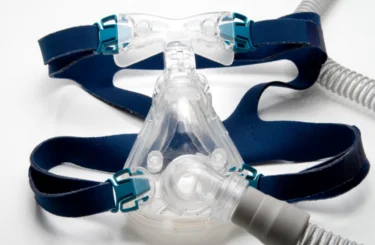The DePuy Artificial Hip Debacle: Part III – Time for Some Changes in FDA Rules
The ongoing irony in this matter is that, technically, DePuy’s actions and behavior relative to FDA and other regulatory protocols was legal. Questionable rules and unaddressed loopholes essentially made the FDA complicit.
When DePuy sought to launch the resurfacing ASR design overseas pending clinical trials in the US, one could argue that the FDA had some responsibility to notify regulators in those other countries that the product was not approved for sale here. Certainly, such a message from the FDA would have carried some weight and may have prompted foreign health care agencies to take some action before opening the door to their own markets. Granted, Britain’s Medicines and Healthcare Products Regulatory Agency and others make their own rules and may not have paid any heed to the information from the FDA, but at least the knowledge would have been shared.
Perhaps the most dangerous provision in FDA guidelines is that which allows designs derived from or similar to previously approved devices to receive virtually rubber-stamp authorization. This was the root problem in the current multitude of vaginal mesh implant cases (discussed in an earlier Sommers Schwartz blog post), and apparently contributed to injuries in US patients caused by DePuy’s second ASR device. Both ASR versions employed a solid metal cup component to replace a patient’s hip socket, a component which experts say flawed in its initial design. Had there been a threshold requirement for clinical testing, additional research, heightened review, etc., the FDA – the government agency entrusted to protect the public from such harm – could have prevented those injuries. Instead, it allowed DePuy to sidestep the patient interests in favor of its bottom line.
Lastly, the FDA’s policy of keeping its approval process confidential is suspect. An agency spokesman told the Times that the FDA has a policy of not releasing such notices as the August 2009 nonapproval letter because they might contain confidential business information. While this is understandable, not all of the letter’s contents deserved such privilege; other facts could and should have been disclosed to keep the public, the medical community, and Johnson & Johnson’s investors informed. As the Times learned, “It is not known precisely what the agency’s letter stated nor is it clear how, or if, the agency’s concerns about the resurfacing version of the hip implant applied to the model used in this country in standard replacement surgeries.” That’s precisely the problem!
More and more, the burden is on the consumer – the patient – to look after his or her own care. Before undergoing any implant procedure, research the device’s background, clinical trials, and effectiveness. Ask your doctor precisely why he or she is recommending a particular device over another. Make sure that you have all the facts you need to make an informed decision to proceed with the surgery.
And if you or someone you care about has been the unfortunately victim of a defective medical implant, please contact us to speak with a trained Michigan medical device attorney. We’ll be happy to discuss your situation and help you take appropriate action if warranted.
Robert B. Sickels
For more than 30 years, Robert Sickels has successfully represented plaintiffs involved in complex personal injury, medical negligence, and products liability matters.





